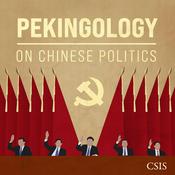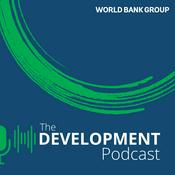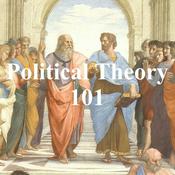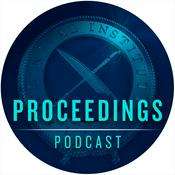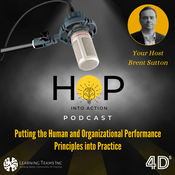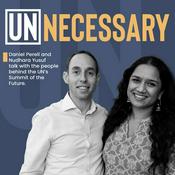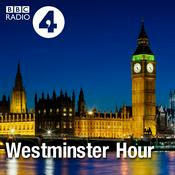10 episodes

Abundance and the Democrats, with Jonathan Chait
02/7/2025 | 57 mins.
On this episode of The Permanent Problem podcast, host Brink Lindsey welcomes Jonathan Chait of The Atlantic to discuss the abundance movement and the future of the Democratic Party. Chait sees a major role for abundance-based ideas in challenging the agenda-setting power of "the groups," or progressive activists, and pulling the party back toward the cultural mainstream; Niskanen, meanwhile, has been a leader in developing the synthesis of libertarian ideas (housing deregulation, permitting reform) and liberal ones (expanding state capacity, prioritizing the clean energy transition) that underlies the abundance agenda. Lindsey and Chait review the intellectual journeys that led to this convergence of perspectives -- from Lindsey's early attempts at a "liberaltarian" synthesis and Chait's sharp rejection of it, to their discovery of common ground against the backdrop of rising illiberalism on both the right and left.

The prehistory, present, and future of abundance, with Steve Teles
12/6/2025 | 1h 4 mins.
Ezra Klein and Derek Thompson's bestselling new book Abundance has kicked off a new political movement -- and a vigorous internal debate on the future of the Democratic Party. Many of the policy ideas behind Abundance were developed at the Niskanen Center, recently described in The Atlantic as "the closest thing to an institutional home for the abundance agenda." On this episode of The Permanent Problem podcast, host Brink Lindsey welcomes Steve Teles, a political scientist at the Johns Hopkins University and a senior fellow at Niskanen, to discuss the prehistory, present, and future of the abundance movement. They review the intellectual backstory of the movement, explain how abundance ideas transcend the traditional left-right divide, dig into the current infighting among Democrats, and look forward to possibilities for an abundance faction on the right.

Christianity and democracy, with Jonathan Rauch
23/4/2025 | 58 mins.
While the formal separation of church and state is a vital element of America's constitutional order, the success of our long-running experiment in self-government has always depended on a healthy interdependence between republican freedom and religious faith. So argues Jonathan Rauch in his new book Cross Purposes: Christianity's Broken Bargain with Democracy. "In American civic life, Christianity is a load-bearing wall," writes. "When it buckles, all the institutions around it come under stress, and some of them buckle, too."On this episode of The Permanent Problem podcast, Rauch joins host Brink Lindsey to discuss secularization and the rapid decline of organized Christianity in recent decades -- in Rauch's words, the combination of "thin Christianity" in the mainline denominations and increasingly "sharp Christianity" among self-described evangelicals. They examine the underlying causes of these developments, how they stoke polarization and undermine democratic values and institutions, and what a healthier "thick Christianity" might look like.

Symbolic Capitalists and "Awokenings", with Musa al-Gharbi
19/2/2025 | 1h 2 mins.
The rightward shift in public opinion that carried Donald Trump back into the White House is being widely interpreted as a backlash against the "Great Awokening" of the past decade -- a surge in radical progressive activism around social justice issues that featured a number of extreme and unpopular positions ("defund the police," "abolish ICE," support for Hamas after the October 7 attacks, etc.). In his new book We Have Never Been Woke, Stony Brook University sociologist and Niskanen Center senior fellow Musa al-Gharbi argues that this is only the latest in a series of "awokenings" over the past century. In each case, he contends, the focus was more on competition within the growing ranks of "social capitalists" (i.e., knowledge workers) than on the plight of the poor and marginalized -- and the net impact consisted more in stoking backlash than in actually driving progress. On this episode of The Permanent Problem podcast, host Brink Lindsey sits down with al-Gharbi to discuss his new book, reviewing the rise of "symbolic capitalists" to economic and cultural dominance and analyzing the dynamics that have led to the poisonous politics of the present day.

Abundance and collapse, with Eli Dourado
16/7/2024 | 1h 1 mins.
A new movement is taking shape around the idea of restoring "abundance." Uniting thinkers from across the political spectrum -- including "supply-side progressives," "conservative futurists," and "state capacity libertarians" -- the movement aims to jump-start technological and economic progress by removing artificial constraints on supply and improving the quality of government. On this episode of The Permanent Problem podcast, Brink Lindsey interviews a leading analyst and advocate of abundance: Eli Dourado, chief economist at the new Abundance Institute and an expert on policy barriers to the emergence of new technologies. Discussing the "great stagnation" in productivity growth, Lindsey and Dourado focus on how most of productivity growth occurs outside the R&D lab, and how therefore broad institutional and cultural factors weigh heavily in determining an economy's overall vitality. Sharing an interest in the work of anthropologist Joseph Tainter, a leading theorist of civilizational collapse, the two also discuss our modern technological civilization's vulnerability to decline and cataclysm -- and how an abundance agenda can reduce that vulnerability.
More Government podcasts
Trending Government podcasts
About The Permanent Problem
Listen to The Permanent Problem, Pekingology and many other podcasts from around the world with the radio.net app
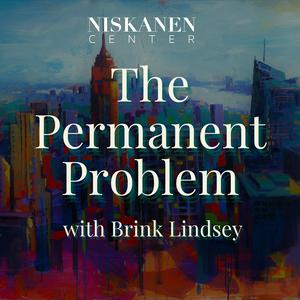
Get the free radio.net app
- Stations and podcasts to bookmark
- Stream via Wi-Fi or Bluetooth
- Supports Carplay & Android Auto
- Many other app features
Get the free radio.net app
- Stations and podcasts to bookmark
- Stream via Wi-Fi or Bluetooth
- Supports Carplay & Android Auto
- Many other app features


The Permanent Problem
download the app,
start listening.
